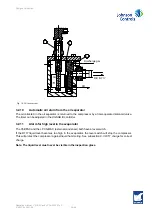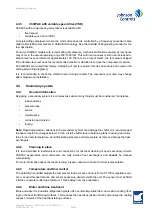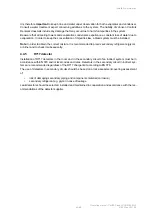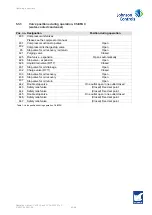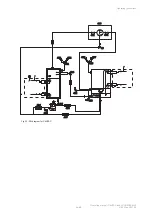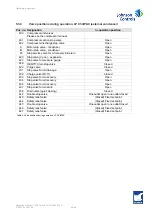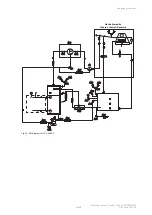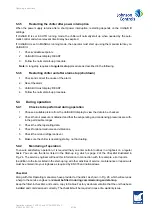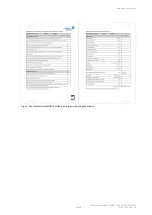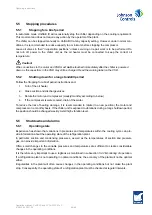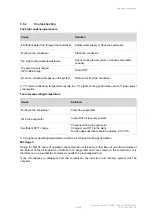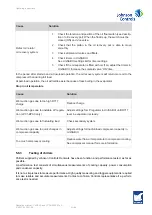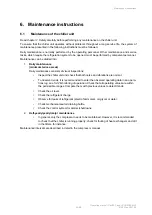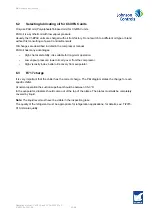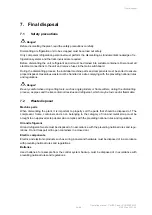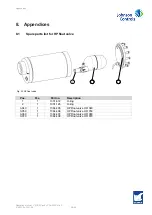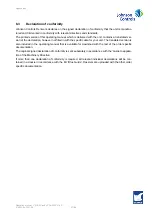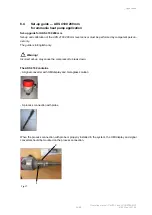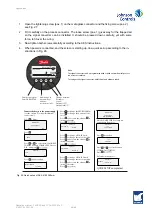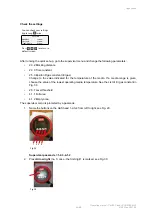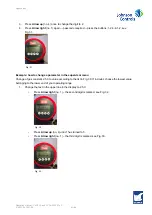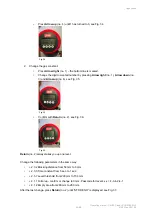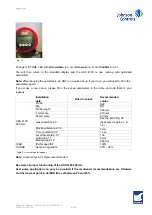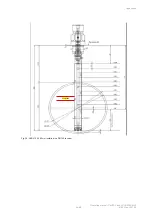
Operating manual - ChillPAC and LP ChillPAC Mk 3
010823 en 2021.06
49/68
5.5
Stopping procedures
5.5.1
Stopping for a brief period
In automatic mode UniSAB III will occasionally stop the chiller depending on the cooling requirement.
This is normal and does not require any action by the operator of the plant.
The chiller can be stopped manually on UniSAB III at any capacity setting. However, under normal con-
ditions, it is recommended to reduce capacity to a minimum before stopping the compressor.
Leave all valves in their “in-operation positions” unless servicing or repair work is to be performed. Do
not turn off power to the chiller unit as the oil heater must be connected to keep the correct oil
temperature.
Caution!
Wire connections to the motor and VSD must
not
be touched immediately after the chiller is powered
down as the capacitors in the VSD may still be charged. Read the warning label on the VSD.
5.5.2
Shutting down for a long standstill period
Follow the
Stopping for a brief period
instructions and:
1.
Turn of the oil heater.
2.
Close suction and discharge valves.
3.
Rotate the motor and compressor (weekly/monthly according to below).
4.
If the compressor is water-cooled, drain of the water.
To reduce the risk of bearing damage, it is recommended to rotate (to a new position) the motor and
compressor on a monthly basis. If the chiller unit is exposed to vibrations during a long shutdown period,
the position should be changed weekly. Avoid high vibration level.
5.6
Shutdowns and alarms
5.6.1
Operating state
Experience has shown that variations in pressures and temperatures within the cooling cycle can pro-
vide information about the operating state of the refrigeration plant.
In particular, suction and condensing pressures, as well as the temperatures of suction and pressure
gas, can provide important information.
Often, small changes in the variable pressures and temperatures are sufficient to create considerable
changes in the operating conditions.
It is therefore very important to use a logbook as mentioned in subsection
If a refrigeration plant is not operating in optimal conditions, the economy of the plant will not be optimal
either.
Irregularities in the plant will often cause changes in the operating conditions but not make the plant
stop. Consequently, the operating state of a refrigeration plant must be checked at regular intervals.

